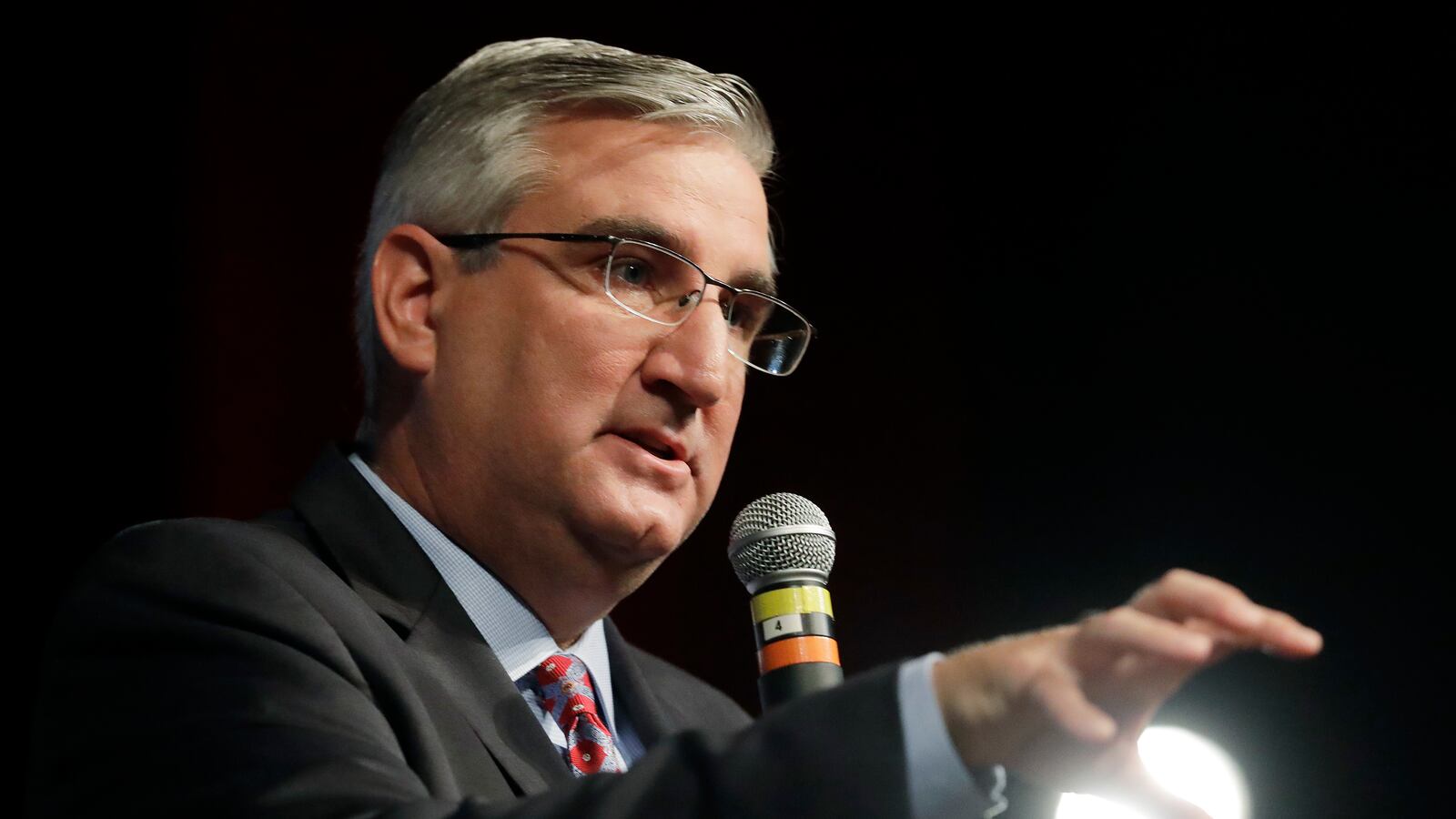On Thursday, Gov. Eric Holcomb said the Indiana Virtual School’s “unsatisfactory” performance — which includes two years of F grades, low ISTEP scores and high student-teacher ratio — requires policymakers to get involved.
In October, Chalkbeat reported that Indiana Virtual School, one of the state’s largest online charter schools, had received more than $20 million from the state while graduating about 61 students. And between at least 2011 and 2015, a for-profit company headed by Indiana Virtual’s founder, Thomas Stoughton, charged the school millions of dollars in management services and rent.
“The state shouldn’t allow schools that have that poor of performance to continue,” Holcomb told Chalkbeat in a one-on-one interview. “I look forward over this next year, with the state board of education, to help put in place measures that hold schools accountable for poor performance. Poor performance would be putting it lightly.”
Holcomb is not alone in calling for Indiana to address the poor academic track records of statewide online charter schools, even though Indiana has long embraced charter schools and school choice.
Former state schools chief Glenda Ritz said virtual schools aren’t a sufficient alternative to traditional schools. State board member Tony Walker said he was shocked by Indiana Virtual’s low number of teachers, while The Mind Trust’s David Harris thinks the state should place a renewed focus on the quality of authorizers, the groups that oversee charters in Indiana. Indiana Virtual is one of the few schools in the state to be overseen by a public school district, Daleville Schools, a small rural district near Muncie.
Also on Thursday, the Indiana State Teachers Association called for a moratorium on virtual charter school growth as well as a funding formula fix based on academic progress, not enrollment. ISTA also asked more broadly for more scrutiny of charter school finances and for the state education department to “approve and monitor a plan to prevent financial and enrollment fraud, waste and abuse.”
Indiana Virtual and its sister school that opened this year, Indiana Virtual Pathways Academy, together enroll 6,332 students. Across the state, more than 12,000 students are enrolled in online charters, most of which earned F grades this year. Two other major online charters, Hoosier Academies and Indiana Connections Academy, also opened new schools in the past year or so.
Holcomb said he understands it can take authorizers time to make changes to address poor academics in the schools they oversee, but children only have so many years to spare.
At this point, Holcomb said he doesn’t see a need just yet for legislation addressing online schools, although he wouldn’t rule it out. He said his team has communicated with the state board that this area needs “immediate attention and action.” It’s not yet clear what measures they want to introduce, or how much authority the state board has to change charter school rules, but he indicated authorizing could be on the list.
Read: Indiana online charter schools need more oversight. These 3 changes could help.
“This next year we’ll be looking at all these issues to say how can we best give students options that fit their needs while at the same time (give) parents and taxpayers confidence that these options are worthy,” Holcomb said. “I think the state board, in this instance, can right the ship.”

